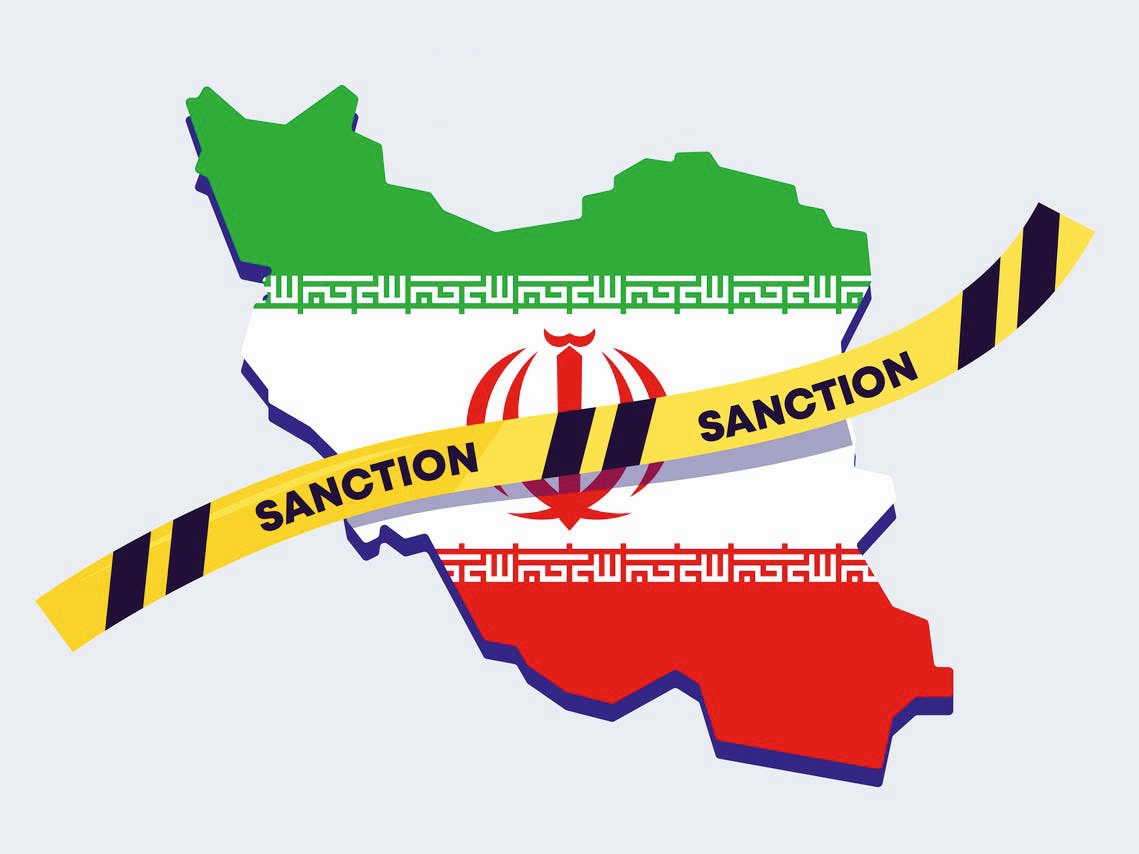Iran is currently experiencing critical hours that may bring it back to the square of severe international sanctions, amid escalating European pressures and dwindling chances of escaping the activation of the "snapback" mechanism, or what is known as the "trigger mechanism," which may come into effect by midnight Saturday GMT.
In a move anticipated for some time, the European troika (France, Germany, Britain) activated the mechanism for re-imposing UN sanctions on Iran at the end of August, citing what it described as "serious violations" of the nuclear agreement signed in 2015.
Since then, Iran's options have become limited, and any of them will not be without cost.
* Macron: Hours separate us from sanctions
French President Emmanuel Macron emphasized two days ago that the remaining time is extremely limited, stating that "only hours separate Iran from the return of UN sanctions."
He confirmed that Tehran could avoid that scenario if it agreed to the troika's conditions, which he described as "legitimate."
* Troika's conditions: 3 critical demands
The conditions proposed by the three European countries to halt the activation of sanctions include:
1 _ Full access for International Atomic Energy Agency inspectors to all Iranian nuclear facilities.
2 _ Addressing European concerns regarding Iran's stockpile of enriched uranium.
3 _ Engaging in direct talks with the United States regarding the nuclear agreement.
* Iran rejects .. and threatens to cancel the "Cairo Agreement"
Despite the pressure of the last hours, Iranian responses have not been reassuring; Kazem Gharib Abadi, Iran's Deputy Foreign Minister for Legal and International Affairs, indicated during a media briefing with non-permanent members of the Security Council that his country would proceed to terminate the "Cairo Agreement" with the International Atomic Energy Agency if sanctions were re-imposed.
* Bezhakian: Consultations did not go as we expected
For his part, Iranian President Masoud Bezhakian, who is in New York to attend the United Nations General Assembly meetings, acknowledged that consultations with the European side "did not go as expected," clearly showing the difficulty of reaching a compromise in these critical moments.
* Russian-Chinese vote .. weak hope
In parallel with the escalation, Russia and China proposed a draft resolution in the UN Security Council to extend the lifting of sanctions on Iran, but the chances of success for this vote seem very slim, according to diplomatic sources.
The adoption of the resolution requires 9 votes out of 15, which is unlikely to happen due to strong Western opposition.
Beijing and Moscow described the "snapback" mechanism as "illegal," considering its activation by the European troika as a unilateral action that contradicts the spirit of the nuclear agreement.
* Security Council: Green light for sanctions
Two weeks ago, the Security Council voted in favor of activating the trigger mechanism, meaning that international sanctions will automatically return starting midnight Saturday, September 27, unless a diplomatic miracle occurs at the last moments.
* Araqchi: We are pursuing an honest policy
In contrast, Iranian Foreign Minister Abbas Araqchi expressed his rejection of the European conditions, asserting that his country "is dealing responsibly and honestly" in its nuclear file.
This came after his meeting with his British counterpart on the sidelines of the United Nations meetings.
* 2015 Agreement .. and military escalation in 2025
The roots of the crisis date back to the nuclear agreement signed in 2015, which imposed strict restrictions on Iranian nuclear activities in exchange for lifting international sanctions.
However, the United States' withdrawal from it in 2018, during President Donald Trump's term, reversed the equation.
With the beginning of 2025, the parties returned to the negotiating table, where several rounds took place between Washington and Tehran until last June.
However, matters escalated when Israel launched attacks on nuclear and military sites inside Iran, and Tehran responded with missile strikes, prompting U.S. military intervention in June through strikes targeting Iranian nuclear facilities.
The military escalation led to the suspension of all nuclear talks, whether between Iran and the United States or with European countries.
* In the end:
Only a few hours separate Iran from the return of strict international sanctions that may once again isolate it from the global financial system and put its struggling economy under further pressure.
Amid difficult choices, the question remains: Will Tehran comply with European conditions or choose confrontation?

